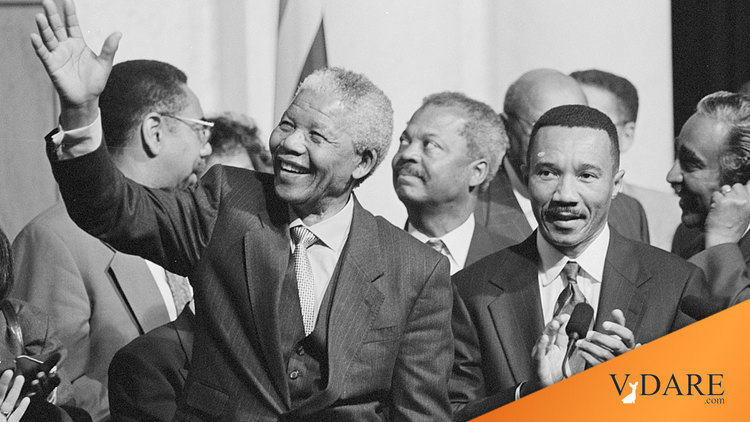
Sailer On Mandela: Making Money For Black And White Elites
By Steve Sailer
12/05/2013
The death of Nelson Mandela, 95, recalls the events of 1987-1991, that hinge of history. After the Fall of the Berlin Wall in November 1989 discredited socialism, the South African white leadership, relieved of worries that the African National Congress would actually implement its traditional Soviet-style economic ideology, quickly moved to make a deal with the black statesman while he was still hale.
The South African Solution was an early exemplification of our post-Communist world. White and black elites came together and agreed that there is plenty of money to be made, at least for white and black elites. South Africa has tremendous resources, so affirmative action for the top layer of blacks would be affordable.
For non-elites, well, the New Model South Africa might not work all that well, but they are by definition non-elites, so where exactly is the problem? If they aren’t happy, all they have to do is become elites. And then their problems will be solved. If they can’t make themselves into elites — such as raped white rural women or gunned down black miners evidently can’t — then their problems aren’t very important, are they? I mean, why are you asking about them? What are you, some kind of Communist?
All in all, the post-Communist world is a better one than the one in which the Soviet Union had 53,000 tanks. Similarly, the South African Solution was a better one than would have been feasible in the pre-November 9, 1989 world.
Still, it’s time to start getting used to how the post-Berlin Wall world works because it’s likely to be one we are living in for a long time. Many of the ideological and intellectual categories that made sense before are now obsolete, but new realities are harder for us to understand because we lack relevant conceptual vocabularies.
